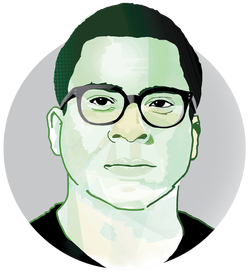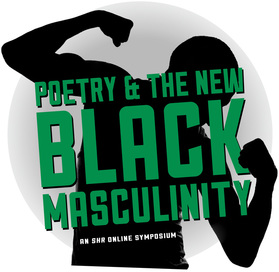|
Vertical Divider
When do you ever get to hear a group of black male poets openly and very specifically address race, sexuality, politics, and depictions of black masculinity in the media? Black men spanning three generations? Gay and straight? Apart from our panel “Poetry & the New Black Masculinity” at the 2014 Split This Rock Poetry Festival (STR), I’d never heard of it. And I wasn’t alone: there was a standing-room-flowing-out-into-the-hall crowd for our panel. After nearly two hours of conversation, readings, and questions, many in the audience urged us—publicly and privately—to propose Part Deux for AWP 2015 in Minneapolis. STR’s Director, Sarah Browning, originally conceived of the panel and asked me to lead it. It’s important to mention that for two reasons. First, Sarah is a white woman. She was very intentional and insistent about creating a space for that kind of conversation to occur during the conference, which, like all the organization’s programming, reflects their mission to “integrate poetry of provocation and witness into movements for social justice.” That’s noteworthy, especially considering the most recent public embarrassments of AWP, the organization that hosts the largest annual conference for writers in the U.S. and is bereft of imagination when it comes to being welcoming and inclusive of nonwhite writers. The second reason is in the brief introduction I made at STR. It speaks to, among other things, why I was conflicted about the title of the panel:
For AWP 2015, we retained the title because “new” is enticing. And, more than likely, it got people in the door who needed to hear about what’s old and has been around—even if unheralded—for a very long time.
As far as I can tell, black people just do the damn thing: create and innovate, upend and speculate, experiment and share, witnessing one another. Convening panels to discuss it all is secondary and usually not for our own edification. |
|
|
|
|




